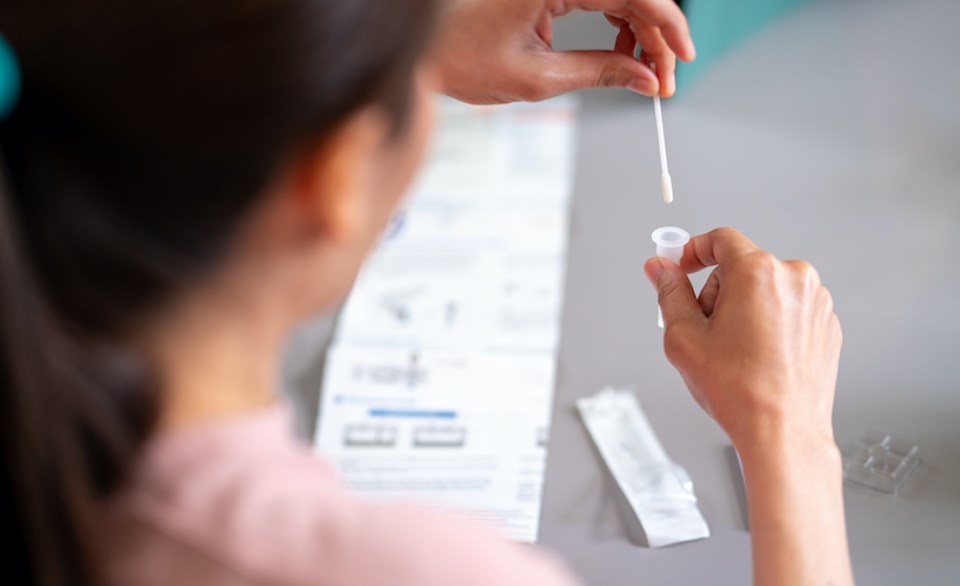Canada's national department of health warns that seemingly benign coronavirus self-testing tool kits contain toxins that may be poisonous.
Rapid antigen COVID-19 self-testing kits have become the go-to option for Canadians looking to verify if they have been infected with the virus and have mild symptoms.
But Health Canada says the test kits may contain a cocktail of chemical ingredients that pose health risks if they are absorbed through the skin or swallowed.
Used as intended, the kits are safe, explains the department in an advisory issued Thursday (Feb. 24). However, many test kits include liquid solutions with chemical preservatives, such as sodium azide and Proclin that may be poisonous if swallowed or absorbed through the skin, particularly in children and pets.
While small doses of sodium azide can lower blood pressure, Health Canada states that larger doses may cause more serious health effects. Proclin contains chemicals that can cause skin and eye irritation, as well as allergic reactions.
Accidental ingestion or skin exposure to very small quantities of liquid solutions would not be expected to cause the serious effects associated with larger doses. For children and pets, however, even small quantities may cause effects.
While numerous British Columbians have received or purchased rapid tests to use at home, the labelling may not completely disclose or describe the health risks. The advisory has been issued to "help fill that labelling gap, and warn Canadians about the risks associated with misuse, accidental ingestion or spillage of rapid antigen test kit solutions," according to Health Canada.
The department is aware of approximately 50 calls made to poison control centres in Canada related to accidental exposure, which have resulted in minor health outcomes.
What you should do
Here's how to safely use and store rapid antigen self-testing kits.
- Keep rapid antigen test kits and solutions out of the reach of children and pets.
- Do not swallow the solutions, and avoid eye and skin contact.
- Wash hands thoroughly after use.
- If spillage occurs, rinse well with water.
- Follow all instructions for proper disposal.
- Report any health product-related side effects or complaints to Health Canada.
- Contact your local Poison Information and Control Centre in cases of accidental ingestion or direct skin exposure to test kit solutions.
For tips on how to use a rapid test, have a look at this comprehensive guide.



